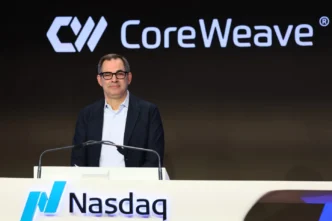Recognizing the growing complexity of cybersecurity, organizations are increasingly turning to AI-driven solutions to relieve the burden. AI agents now handle repetitive tasks, improve threat detection, and give security teams the freedom to focus on critical issues. Riding this wave, Microsoft has supercharged its Security Copilot platform with the introduction of 11 AI-powered agents. Six developed in-house and five from trusted partners—marking a major step forward in scaling cybersecurity operations with generative AI.
Launched in April 2024, Microsoft Security Copilot combines powerful generative AI with Microsoft Threat Intelligence. Which processes a staggering 84 trillion signals daily and blocks 7,000 password attacks every second. This AI-driven assistant helps security teams move faster, uncover hidden threats, and make smarter decisions when it matters most.
With Security Copilot, Microsoft directly tackles the three biggest challenges plaguing modern cybersecurity teams. Which are overwhelming data volumes, constant alert fatigue, and limited visibility across sprawling security systems. Microsoft’s approach is clear: deploying agentic AI to match the scale and speed of today’s threats.
“This is just the beginning. Our AI research continues to push boundaries, and we’re committed to delivering even more value to customers at the speed of AI,” says Alexander Stojanovic, VP of Microsoft Security AI Applied Research.
Meet Microsoft New AI Security Agents
Microsoft’s six new in-house agents are designed for specific security tasks, operating autonomously and adapting to real-world workflows—all within the Zero Trust framework. In Zero Trust, no user, device, or application is trusted by default, even inside the network.
Here’s how each AI agent strengthens Microsoft’s security ecosystem:
- Phishing Triage Agent (Microsoft Defender): Filters phishing alerts, separates real threats from false positives, and improves detection accuracy by learning from security teams.
- Alert Triage Agent (Microsoft Purview): Prioritizes the most critical data loss prevention and insider risk alerts, ensuring faster response times.
- Conditional Access Optimization Agent (Microsoft Entra): Spots policy gaps, recommends updates, and helps safeguard users and apps.
- Vulnerability Remediation Agent (Microsoft Intune): Tracks system vulnerabilities, prioritizes risks, and automates remediation plans.
- Threat Intelligence Briefing Agent (Security Copilot): Crafts tailored threat intelligence reports based on the organization’s risk profile.
These AI agents operate independently, constantly learning and improving, which allows security professionals to shift focus to high-impact tasks instead of getting bogged down in routine investigations.
Beyond Microsoft’s own agents, five specialized partner agents have been added to the mix—each bringing unique skills to tackle niche security challenges:
- Privacy Breach Response Agent (OneTrust): Assesses breaches and offers compliance guidance with complex data protection regulations.
- Network Supervisor Agent (Aviatrix): Performs root cause analysis for network security issues and recommends fixes.
- SecOps Tooling Agent (BlueVoyant): Reviews SOC performance and suggests operational improvements.
- Alert Triage Agent (Tanium): Adds context to alerts, empowering analysts to make better-informed decisions.
- Task Optimizer Agent (Fletch): Predicts which alerts need attention first, easing analyst overload by deprioritizing noise.
These additions strengthen Microsoft Security Copilot’s ecosystem, giving organizations a more comprehensive toolset to handle ever-growing cyber risks.
OneTrust’s Chief Product and Strategy Officer, Blake Brannon, sees this shift as transformational: “An agentic approach to privacy is game-changing. Autonomous AI agents will help our customers scale and enhance their privacy operations like never before.”
With these intelligent agents, privacy teams can analyze breaches and navigate complex regulations in record time, making Microsoft’s Security Copilot a powerhouse for modern cybersecurity.
As the threat landscape grows more volatile, Microsoft’s AI agents offer a smarter, faster, and more scalable way to defend businesses, proving that AI is not just an advantage—it’s becoming a necessity.













